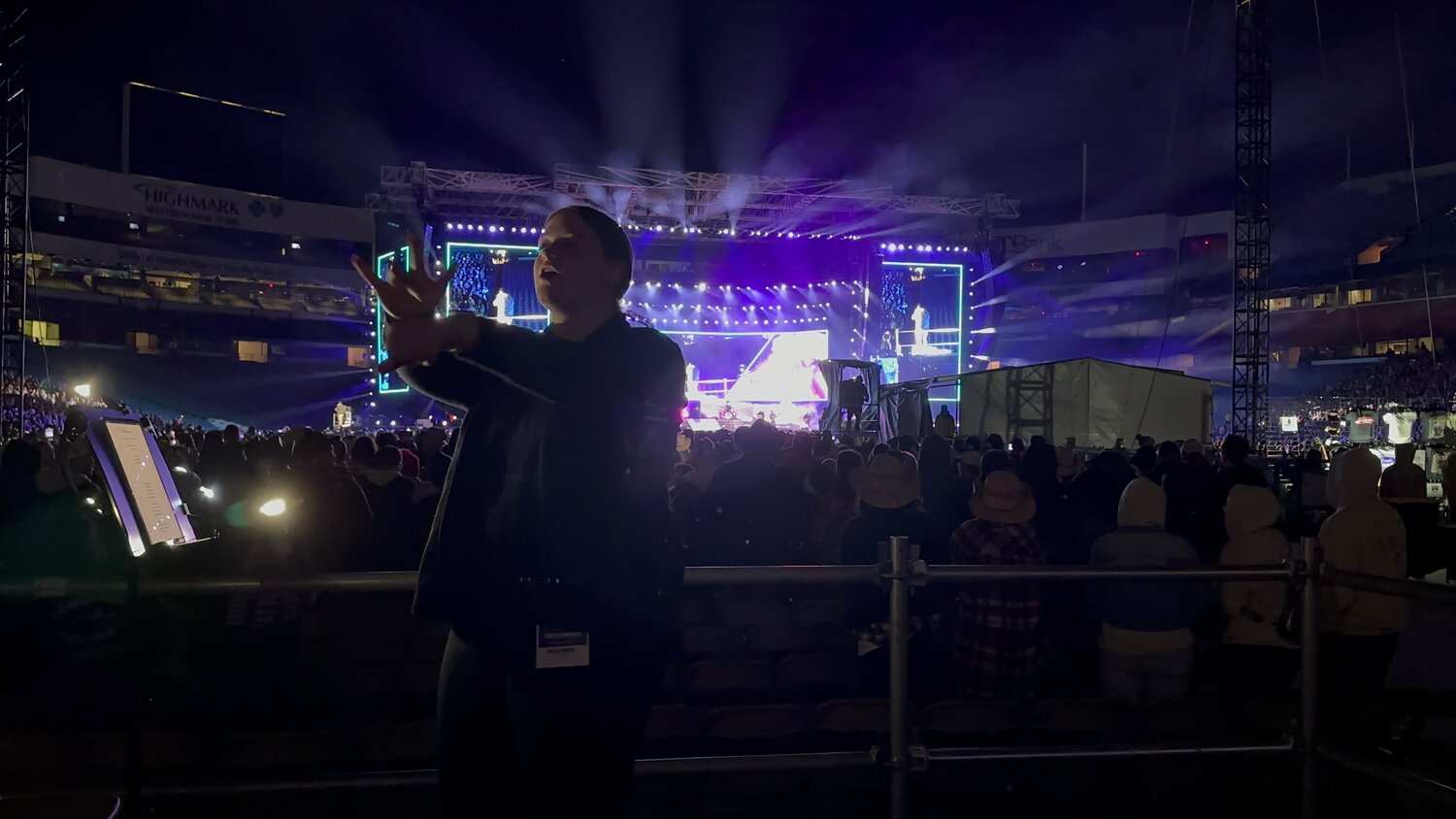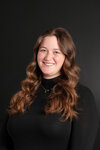Taylor Parides of Baldwin to give commencement speech in sign language
Taylor Parides discovered her passion for American Sign Language as a sophomore at Baldwin High School in 2017, where she met her first deaf person, who happened to be her teacher.
“He exposed me to more than just ASL,” she said about her ASL teacher, Brynjar Leifsson. “It’s always cool to see people, you know, communicating with their hands and their bodies, but he showed me that there is more to the deaf community than that. It really is a culture and a community.”
Parides, a Baldwin native, is set to graduate from Rochester Institute of Technology with a bachelor’s degree in American Sign Language and Interpreting Education on May 10. In addition, she will deliver the commencement speech for the National Technical Institute for the Deaf, also known as NTID, which is nestled on the RIT campus.
After graduating from Baldwin High School in 2020, Parides faced several challenges, she said. During her first year of college, she encountered limitations on various fronts, particularly in social interactions, due to the constraints imposed by the Covid-19 pandemic.
“It was a bit of a rough start,” she said, “going to a college and trying to learn a new language on a computer instead of, you know, in person.”
Once Covid restrictions began to be lifted, she started to grasp the immense size of the deaf community at RIT.
NTID is one of nine colleges on the campus and serves as the hub for the largest technological college in the world catering to deaf and hard-of-hearing students. With more than 1,000 deaf students enrolled, it has earned its reputation as the most accessible college for the deaf and hard-of-hearing.
While on campus, Parides actively participated as a member of the Deaf Health Care and Biomedical Science Hub, which was created to mentor deaf and hard-of-hearing students aspiring for careers in health care or biomedical science. Within the hub, she delved into research concerning effective communication in healthcare settings for patients. She also engaged in activities like the “No Voice Zone” club, a space for signing with fellow deaf individuals.
She also contributed by interpreting as a learning assistant in courses.
Networking and connections play a vital role in college, Parides emphasized, recently jumping at an opportunity to interpret for country artist Luke Combs’ concert in Buffalo last month.
“My networking up in Rochester made that possible,” she said. “In my program, they emphasize the importance of connecting with other interpreters and actively engaging in the community. That’s how opportunities like that arise.”
A fan of Combs, she noted that the concert scenery was quite different from what she’s accustomed to experiencing.
“It was amazing. I remember feeling very nervous,” she said. “Honestly, the minute I was up there, all my nerves went away.
“I did have some deaf consumers and just feeling your eyes on me and feeling very supportive in that environment,” she added. “I don’t even think I looked at Luke Combs once.”
Last month, she was announced as the commencement speaker and promptly commenced drafting her speech in English. This month, she finalized and submitted her address. Departing from conventional oratory norms, she will deliver her speech in sign language, with an interpreter from the school rendering her message into spoken English for the audience.
“It is really exciting but really nerve-wracking to deliver such an important speech in a language that is not my first,” she said. “But I am excited for the opportunity and reflecting on my time at RIT and even my time at Baldwin high.”
After she graduates from college, Parides will work at Interpretek, an interpreting agency in Rochester as an interpreting coordinator.
Despite facing challenges with hearing, deaf individuals demonstrate abilities and talents, showcasing that while they may not hear, they excel in various other aspects of life just like everyone else, she said.
“Deaf people can absolutely do everything that hearing people can do except for hearing,” Parides said. “Interpreters do not function as ‘helpers’ or ‘help’ deaf people. We’re basically there to just facilitate communication between both the hearing and deaf person.
“Without the deaf community, I would not be where I am today,” she added.









